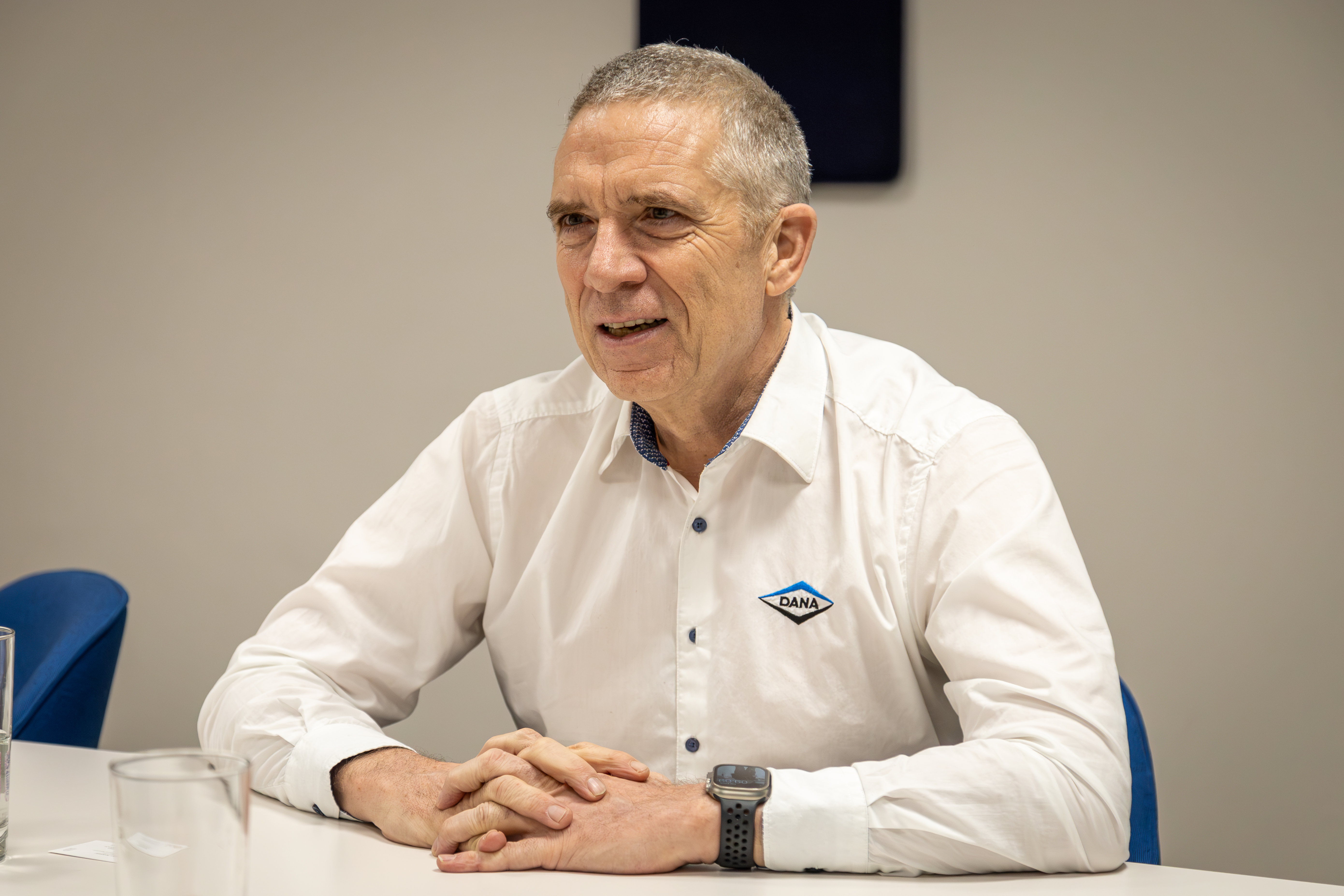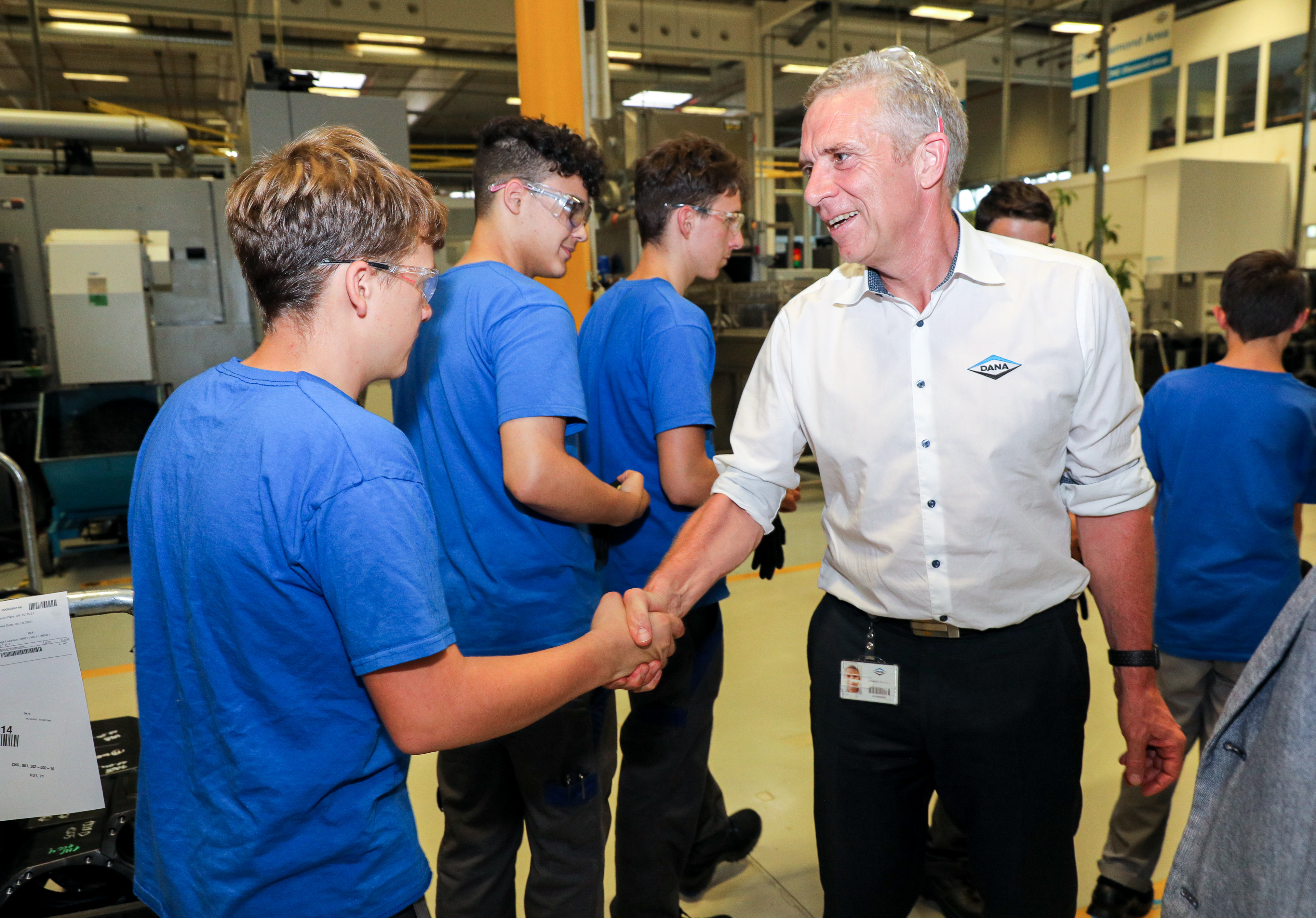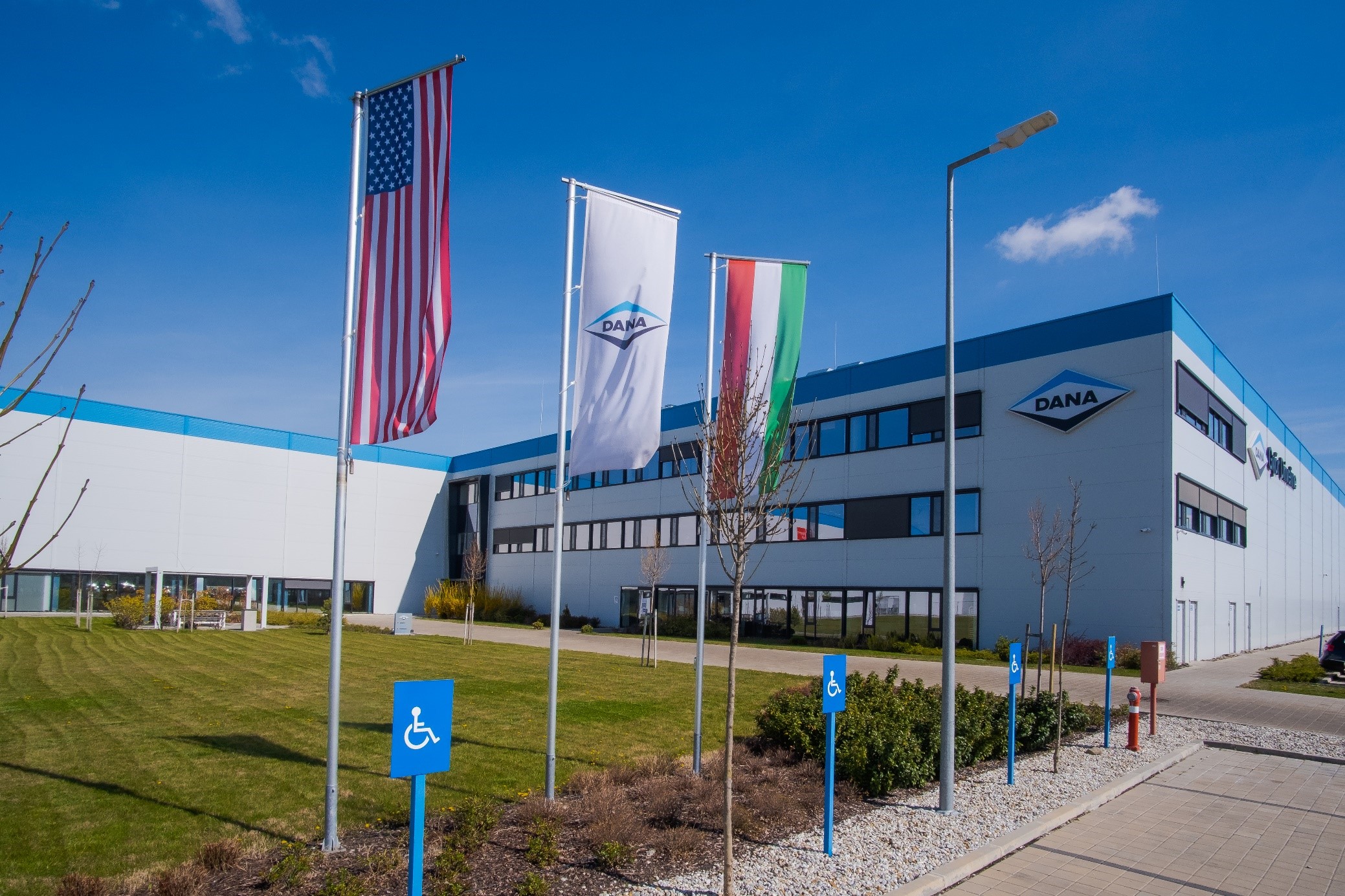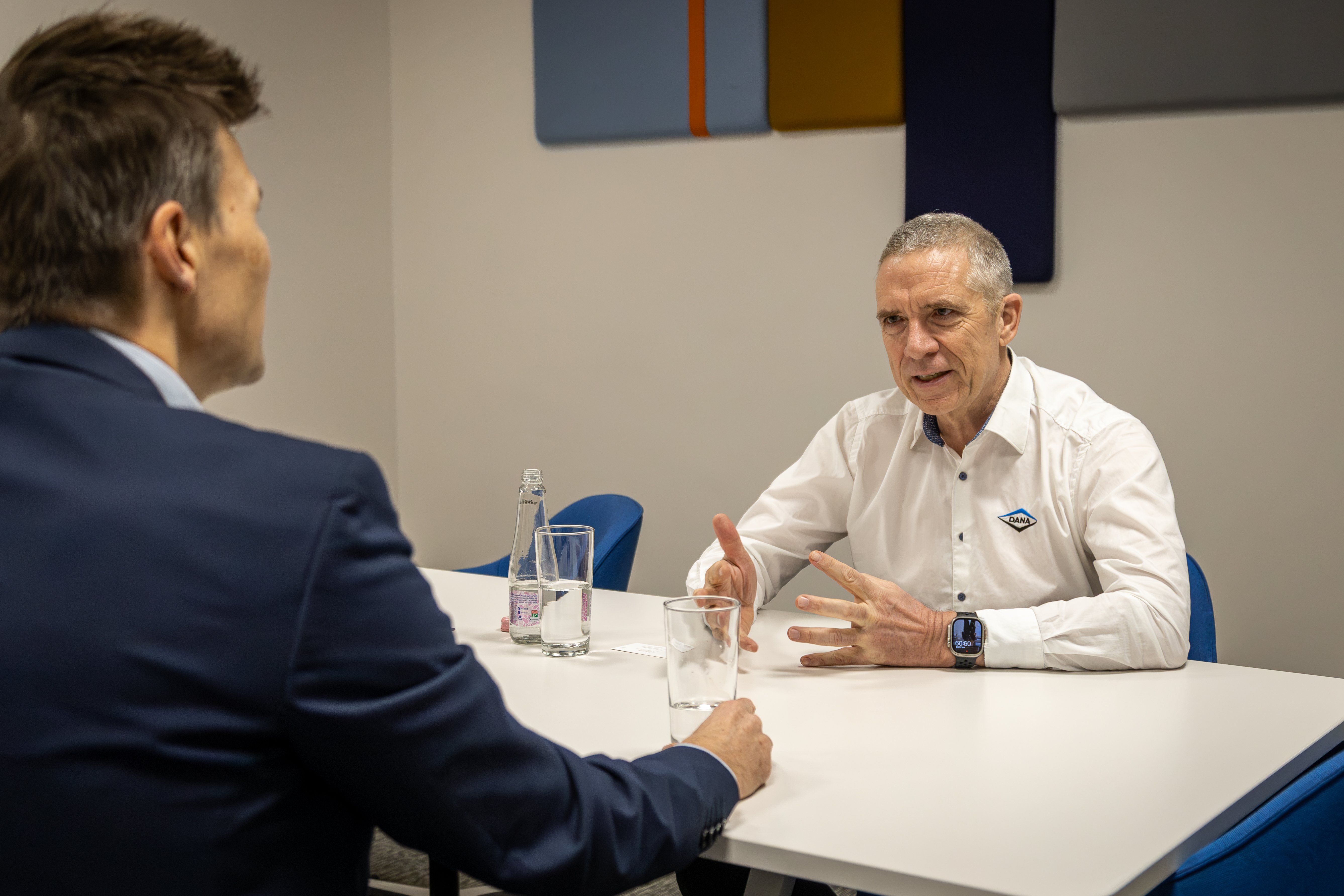
Dana’s Expansion in Hungary – A Tale of Passion and Resilience
2024. 02. 05.
Their fourth plant ended up in Hungary just by a hair, but by now they are expanding here yet again. Győr-based leading mobility parts manufacturer Dana Hungary has become one of the largest employers of the region not least thanks to shared service approach management, a supportive company culture and a GM that has been fighting for Hungarian economic interests ever since he arrived in 2014.
When you enter ’Dana Hungary’ into your GPS, it takes you straight to Kardán street in Győr. The signs say ‘Dana I’ and ‘Dana II” referring to two neighboring facilities. They not only look big – they actually are, with total acreage of 27,000 square meters. However, upon our arrival it turns out that we are on the wrong spot: the meeting with GM Mr. Charles Wassen takes place at a different site that alone is nearly just as large. Apparently Győr is no longer just about Audi when it comes to automotive.
“This is the only place in Europe where all of our businesses are present, serving markets such as light vehicle, commercial vehicle, off-highway, industrial, and the aftermarket,” Mr. Wassen points out while recalling the debate over finding the location for the fourth facility. The original site was supposed to be in Nitra, Slovakia, near the JLR Eastern European plant. It seemed like a done deal, but Dana’s Hungarian team together with HIPA managed to turn it all around.

Mr. Wassen tells this story and all the rest in a very dynamic fashion. He also strikes you as a very much down-to-earth person who treats everybody as a partner. His colleagues confirm this impression by saying that staff just loves the way the GM interacts with them. This must be connected to the company culture he has been deliberately building since early on. (See box for more on that.)
Smooth cooperation between the plants is facilitated by a shared service approach that works very well, as evidenced by relevant figures. The Hungarian operation’s revenue grew by nearly 30% between 2021 and 2022, and it is forecast to go up further in 2023. Headcount has been following a similar pattern. By now close to 1,300 people are employed by the American automotive supplier, more than twice as many as back in 2016.

Every unit is important, but the European Aftermarket Distribution Center is of particular importance as that’s the warehouse that supplies the entire continent with different Dana products. Walking the busy production hall underscores all that data: there’s no time to sit back, and current shift records are on display to push staff to achieve more.
Hungary remains attractive for investors not only based on being a best-cost country. In Mr. Wassen’s opinion, other factors such as HIPA’s professional assistance, the availability of government incentives as well as Hungarian professionals and a strong talent pipeline all play a role in attracting more FDI. No wonder Dana has decided to reinvest here yet again: in June 2023 they announced to add capacities in value of EUR 96 million to serve the EV market.

Gearing up for the e-transition is not that simple, though, as manufacturers like Dana must handle customer demand for internal combustion engines (ICE) and manage rapid growth in electrification all at once.
“At present, we are observing that all our plants are operating at a heightened capacity. This growth presents a fortunate situation as it opens numerous opportunities for new technologies and paves the way for the professional and technical development of our employees,” Mr. Wassen says.

As to the general economic outlook, Mr. Wassen is optimistic. On the other hand, he would like to see more Hungarian mid-sized companies that are ready to go global. “If you want to work with us, you need to be able to do that.” The problem is that there are just a few big suppliers and a lot of small companies – nothing in between. He also has the impression that startup mentality thrives here, although that potential is not exploited at all. “Both mid-sized firms and startups deserve more government attention for the sake of the future of the economy,” he concludes.
Mr. Wassen has been in Hungary since 2014, and by now he is one of the most influential business leaders in the region. Having been nominated Expat CEO of the Year, he is also the first and only international member of the presidency of the Association of Hungarian Automotive Industry (MAGE). He feels honored to hold that position because his aim is “to highlight the international presence of Hungary and Hungarian professionals.” As he explains, he is not much of event goer. Instead he is fighting for Hungary where things get done: in the real world.